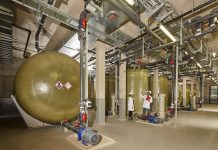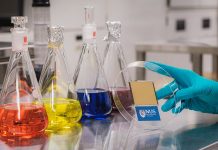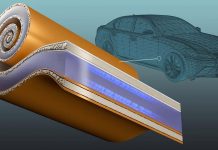
A team of researchers from Pohang University of Science and Technology (POSTECH) has developed a groundbreaking high-energy, high-efficiency sodium-air battery.
This innovative battery can use sodium and air without needing special equipment.
The team, led by Professor Byoungwoo Kang and Dr. Heetaek Park from the Department of Materials Science and Engineering, has published their findings in the journal Nature Communications.
Sodium-air batteries are part of the next generation of high-capacity batteries, which are essential for green technologies like electric vehicles and energy storage systems.
These batteries use readily available resources like oxygen and metals, making them a sustainable choice.
However, a major challenge has been the formation of carbonate, a byproduct that reduces battery efficiency due to reactions involving atmospheric carbon dioxide (CO2) and water vapor (H2O).
To overcome this issue, most metal-air batteries require additional equipment, such as oxygen permeation membranes, to purify or selectively use atmospheric oxygen.
However, the POSTECH team has found a way to address this problem without the need for extra equipment.
The researchers used a material called Nasicon, a sodium superionic conductor and solid electrolyte, to tackle the carbonate issue.
Nasicon, made from elements like sodium (Na), silicon (Si), and zirconium (Zr), allows ions to move within the solid state and has high electrochemical and chemical stability. This solid electrolyte protects the sodium metal electrodes from air and helps break down the carbonate formed during battery operation.
This new approach led to a significant increase in the battery’s energy density by raising the working voltage and reducing the voltage gap during charging and discharging, thus enhancing energy efficiency.
The all-solid-state sodium-air battery also demonstrated excellent performance due to the fast sodium ion conduction within the electrode, achieved through an in-situ formed catholyte.
Remarkably, this new battery operates solely on metal and air without needing any special equipment for oxygen filtration, making it simpler and more practical.
Professor Kang, who led the research, commented, “We’ve found a way to manage carbonate, a long-standing challenge in developing high-energy metal-air batteries.
Our goal is to lead the development of the next generation of all-solid-state metal-air batteries using a solid electrolyte-based platform that is stable in normal conditions and offers a wide voltage range.”
This innovative sodium-air battery represents a significant step forward in battery technology, offering a more efficient, high-energy, and environmentally friendly solution for future energy needs.
Source: KSR.



